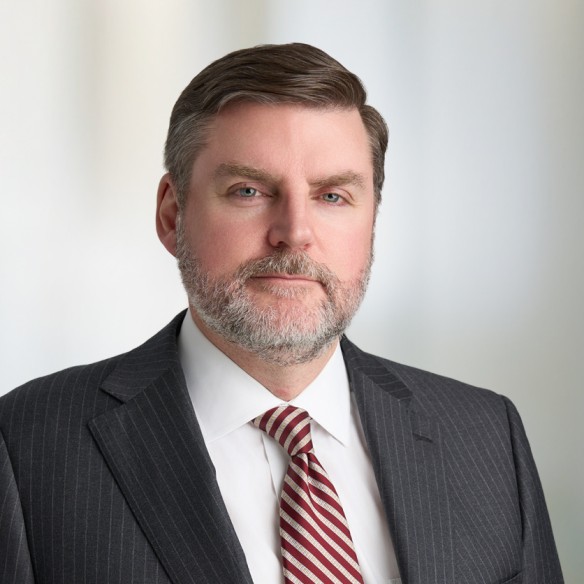Christopher Ondeck of Proskauer Rose LLP helped convince a jury to reject claims that Sanderson Farms conspired to limit chicken production, allowing the company to escape $7 billion in potential damages after scoring key pretrial wins in the massive case, earning him a spot as one of the 2024 Law360 Competition MVPs.
His biggest accomplishment:
Ondeck said his biggest accomplishment of the year was the jury trial win for Sanderson Farms in October 2023, in a case alleging that the country's largest chicken producers colluded to reduce supply levels for over a decade, causing prices to be artificially high.
The case initially accused 21 companies of participating in a conspiracy, including Tyson Foods, Pilgrim's Pride and Perdue. Ahead of trial, Ondeck won a key summary judgment ruling on behalf of the joint defense group, getting one of the central theories in the case tossed. He then helped client Wayne Farms escape the case entirely on summary judgment.
Sanderson brought in Proskauer as a result of those pretrial wins and was ultimately the only company to take the claims to trial, with the remaining defendants all deciding to settle.
"I had a client that was one in a million," Ondeck told Law360. "For Sanderson to take the risk of sticking with their convictions, that they hadn't conspired with anyone, they had a lot on the line."
Rather than trying to convince the jury that Sanderson was not involved in a conspiracy, Ondeck said the strategy was to argue there was no conspiracy at all by explaining that the reduction in output cited by the buyers was the result of a crisis in the industry caused by the Great Recession. After a six-week trial, the jury deliberated for about nine hours before rejecting the claims.
"Before the end of the day, after the longest antitrust trial of the year, the jury came back and was unanimous in our favor," Ondeck said. "Biggest accomplishment? That, by far."
His biggest challenge:
Proskauer had a team of 25 attorneys and staff working on the Sanderson trial in Illinois, while the five different groups of direct buyers bringing the claims had 19 different firms between them.
Ondeck said many members of the team had to work late into the night throughout the proceedings because the trial included 70 witnesses who testified through video depositions, which required any objections over the material to be handled the night before it was shown in court.
"All of us lost some years of our life going through the trial," Ondeck said. "You have to have a fantastic group of midlevel and junior attorneys who like trials and want to have that be their career track."
Ondeck said the sheer length of the trial was the most challenging part. While no one really wanted to leave, he said, they had to set up a system to give people days off for their own good. He also said they started having a "family dinner" each evening where the team gathered for a meal together.
"Eating together every night lets you have a little relief and a little feeling of support that keeps the morale up," he said. "It's exciting to be at trial, it's the reason a lot of people became lawyers, but we didn't want anyone to burn out."
Why he's an antitrust attorney:
Ondeck said he's always been drawn to the practice area because every antitrust case is about a specific industry and requires attorneys to really know and understand the businesses they work with. For example, working on a case involving the shale oil industry taught him the economics of oil drilling and provided an opportunity to be on an oil rig.
He also visited a processing plant and other facilities while working on the Sanderson case and was able to explain to the judge how eggs are incubated because he had been to a hatchery. "You have to be able to speak first-person to a jury or to a judge," Ondeck said.
"You have to go and see the client and how it operates, or you're just not able to speak on their behalf effectively to be their advocate in court."
His advice for junior attorneys:
When hiring attorneys out of law school, Ondeck said his firm only looks for people who are interested in going on site and meeting with clients, whether that be in Switzerland or Idaho, because that's what is needed to provide good client services.
He also said this can be a "tremendously fun and tremendously fulfilling" part of the practice.
If young attorneys want to litigate, he said they have to try to find cases they can take to court, and that starts by learning a client's business.
"Learn the client's business. Any young attorney can learn it even better than the partner, and then they have a value to take to the team," Ondeck said.
Reproduced with permission. Originally published October 22, 2024, "MVP: Proskauer Rose's Christopher Ondeck,” Law360.

